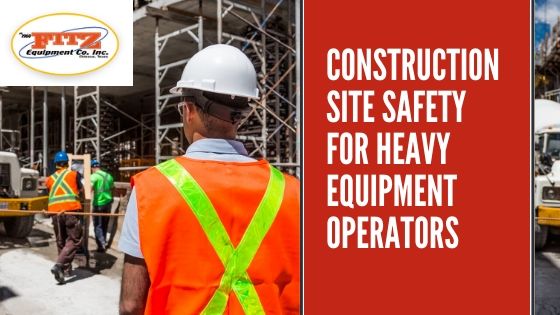While even minor accidents that occur on the job site or within the workplace can often be very serious issues, mishaps involving heavy equipment typically involve more serious injuries or extensive damages. Equipment operators, construction professionals and even business owners would all be wise to ensure that nothing interferes with their ability to create and maintain a safer and more secure working environment. The following issues highlight some of the most common, costly and potential dangerous safety concerns involving the operation of heavy equipment at a job or work site.
Ensuring All Operators Are Properly Trained and Certified
Operator error is one of the most common causes of job-site accidents. Employees, contractors and other professionals who lack the training or certification needed to operate heavy equipment in a safe and effective manner are a liability that no foremen or business owner can afford to discount. Assessing all training protocols and ensuring that both current and future equipment operators possess the skills and experience needed to make safety their number on priority is often all that is required in order to significantly reduce the risk of accidents, injuries and other mishaps.
Situational Awareness
Staying alert, focused and aware of all activity taking place within the surrounding environment can be all but impossible on a busy construction site. Identifying the areas where projects may overlap, regulating foot traffic to areas away from equipment operations and tasking operators to stay vigilant and aware of their situation can enhance site safety considerably. Even the most stringent training methods and safe workflow processes may do little to prevent an accident in the event that operators become distracted or loose sight of their surroundings. Situational awareness is of paramount importance when it comes to reducing potential safety risk and resolving workplace hazards.
Mechanical Failure and Equipment Breakdowns
There are times when proper equipment operation is not enough to ensure site safety. Mechanical failures caused by old age, heavy use or even defective equipment may cause potentially serious accidents, especially when they affect torque converters, drive axles, conveyors and other equipment that may be under heavy load. Performing preventative maintenance and routine equipment inspections helps to ensure that smaller issues are able to be identified and resolved before they have the opportunity to grow into larger or more dangers concerns. Basic upkeep and routine inspections can help to ensure that blown torque converters, worn conveyors or stressed cables are less likely to become a safety risk.
Site-safety Protocols
Establishing workplace protocols, safety guidelines and other rules can go a long way towards ensuring workers and associates are able to be kept safe from harm. Safety guidelines can be used to address concerns ranging from the commonplace and frequent to the very unlikely. Assessing various equipment hazards that may be present at a construction site will allow site managers or service providers to address the most pressing issues and serious concerns. Reviewing site safety rules and procedures from time to time can also provide valuable opportunities to make whatever changes may be required.
Creating and Maintaining a Safer Working Environment
Being able to ensure that both daily operations and large projects can be completed with less risk of an incident, accident or injury is never a concern that should be left to chance. Ensuring that all heavy equipment operators have been properly trained and made aware of their environment can go a long way towards reducing the likelihood of an on the job accident. Adopting more stringent safety rules and inspecting torque converters, conveyors and other the other components that are most likely to suffer from wear or stress can make a real difference in reducing or even eliminating many of the most common and serious safety hazards.

Leave a Reply